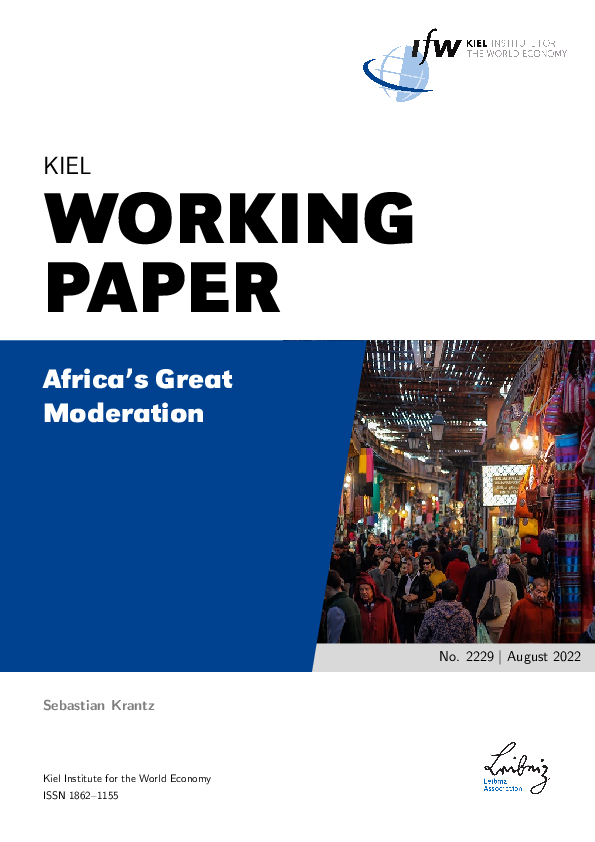Authors
Publication Date
JEL Classification
Key Words
Related Topics
Africa
Over the past 30 years (1990-2019), African economies have experienced remarkable improvements
in macroeconomic conditions, characterized by higher and more stable real per-capita growth rates,
and lower and more stable inflation. This paper documents the persistent decline in macroeconomic
volatility at the aggregate and sectoral levels, and seeks to provide explanations. Sectoral analysis
shows a particularly strong reduction of growth volatility in agriculture, and, to a lesser extent, in
services. Analysis of a broad range of explanatory factors yields that only a small fraction of the
moderation can be explained by structural change, and changes in major structural characteristics
such as institutions, trade intensity and diversification, natural resource dependence, or conflict incidence.
Evidence suggests that changes in the external environment, improved macroeconomic policy
frameworks, and ’softer’ structural improvements such as the deepening of the financial sector and
increases in human capital, were important towards reducing volatility on the continent.





